Saturday, January 25, 2003, Austin, TX
There was a cozy church sanctuary, a fully stocked merchandise table,
three premier experimental artists, and an audience of about 75 people.
It was a familial vibe all around, and quite unlike any other show I've
ever been to.
William Basinski, sharply dressed in black suit, was introduced (by
a guy I'm assuming is the head of Robot Records) and his set began
about 8:15. On stage were two folding tables, the center one with six
or so components and his Apple laptop on top, and one off to the right
with a mixer and a large reel to reel tape machine. The set began with
three or so shorter, continuous pieces then settled into one epic
piece, probably 40 minutes, obviously one of Basinski's "Disintegration
Loops." He occasionally looked at the laptop screen and reel to reel
but spent the bulk of the time with the mixer faders, headphones on,
very subtly and very patiently layering sources. The tape loop was
literally disintegrating, ending up just a small strip by the end of
the set. The whole piece sounded like an old orchestral recording. The
repetition of the loop was relentless, but elements within the loop
were very gradually transformed. I could sense the "percussion" falling
out of time and later it seemed smeared, possibly reversed, in the mix.
This was very soothing, engaging stuff. The crowd remained perfectly
silent until the end and politely clapped. It was a very good start.
After a 10 minute intermission, Andreas Martin, more casual in blue
windbreaker and blue jeans, was introduced. Martin is very unassuming
and quiet but spoke some in German-inflected English. He told us the
first song was written a few days ago while thinking about how nice it
was to have the opportunity to come there (from Hamburg) to play for
people. He gave us the German title and an English translation as
"Lucky Mushroom." I had assumed that he would use the guitar and
effects to produce drone-y stuff like the Mirror records I have, but it
was nothing at all like that. These songs were very physical and
intricate, melodic and rhythmic, with all the notes rapidly finger
picked or hammered on by both hands. Harmonics and different tunings
were frequently used and some songs included percussive bits where he
either slapped the top of the guitar or the side (with his ring)
underneath the fretboard. Between songs he would catch his breath and
sweep back his curly black hair. One song was a cover of an American
composer who died in 1997, the name I didn't quite catch. Martin
finished his last song and shyly said "that's all," but we clapped
crazily so he did another one, it being the most aggressive of them
all.
After another brief intermission, Heemann took the stage, sat in a
folding chair behind the center table, and was introduced. Most the of
the time was spent looking at CD players and fiddling with knobs on the
mixer. There were roughly three parts to his set. It began pretty
abrasively, mostly with noise waves and some ambient sound that
included a buried (Euro) emergency vehicle. The sound concentrated into
a powerful, harsh drone for about half the set, suddenly stopped, and
began again with a softer drone. It was this last drone that really,
really sucked me in. Heemann made it ebb and flow some but it also
maintained a constant frequency for its 20-minute duration. Everything
suddenly stopped around 11:00 and Heemann departed stage rather quickly.
Soon after, my friend and I realized that Heemann's set had
physiologically altered us (my equilibrium in particular - so much that
I was afraid to drive for awhile). It was to remain that way for the
rest of the night. Never before had we been so affected by live music.
Did Heemann intentionally use frequencies that would have that effect
on the audience? Did others feel like we did? Would we ever be the same
again?
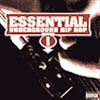 I've never hid my true feelings about "underground" rap music in myreviews. Whether I'm muttering about the lackluster Def Jux family,discrediting the Anti-Pop Consortium, or setting The Streets ablaze, Ishow love to the street-level lyricists who represent properly asopposed to digging through their backpacks for their thesauruses. Yes,I know that artists like Run DMC and Grandmaster Flash built rap music,but so did NWA and the Geto Boys. So when I spotted this budgetsampler, I was inititally skeptical until I scanned the roster: no DefJux names in sight. Released on indie Landspeed Records label, thislengthy compilation packs 19 tracks full of the diversity of theunderground, from hustlers and gangsters to Okayplayer heads andoldschool purists. With contributions from both well-known artists likeN.O.R.E. and 18 Cent (currently tearing up rap radio with two hitsingles from his album on Eminem's Shady Records imprint) as well asoriginators like Inspectah Deck and Big Daddy Kane, there's somethingfor everyone here. Mobb Deep brethren Infamous Mobb spit versesstraight outta Queensbridge over two trademark Alchemist produced cuts,reminding me once again that my borough rocks hardest. Speaking ofQueens, Cormega comes correct here as well, with "Built For This" fromhis latest album (which incidentally made my Top 10 List for 2002) theolder banger "Get Our Of My Way." The biggest surprises here are thehigh-quality unknowns like the Havoc-endorsed R.A. the Rugged Man.Produced by Ayatollah, "You Don't Wanna Fuck Wit" is rife with sweetbeats and pleasantly obscure references to Nabokov's infamous pervertHumbert Humbert and the road rage rich girl Lizzie Grubman. Also ofnote is Group Home, an assumedly Gang Starr-related project whose"Handle Your BI" emits serious head-nodding soul that could warm up thecoldest winter night. The overall outcome is impressive, despiteparticularly weak moments from 7L and Esoteric, Thirstin Howl III, andNon Phixion (whose tasteless rhyme about Michael J. Fox is as funny asanother Christopher Reeve joke, as just as original). Considering youcan find this CD online and in both large and independent recordretailers for around $6.00, you'd be foolish to pass up thisopportunity to get a good look at some of the best artists in theunderground today.
I've never hid my true feelings about "underground" rap music in myreviews. Whether I'm muttering about the lackluster Def Jux family,discrediting the Anti-Pop Consortium, or setting The Streets ablaze, Ishow love to the street-level lyricists who represent properly asopposed to digging through their backpacks for their thesauruses. Yes,I know that artists like Run DMC and Grandmaster Flash built rap music,but so did NWA and the Geto Boys. So when I spotted this budgetsampler, I was inititally skeptical until I scanned the roster: no DefJux names in sight. Released on indie Landspeed Records label, thislengthy compilation packs 19 tracks full of the diversity of theunderground, from hustlers and gangsters to Okayplayer heads andoldschool purists. With contributions from both well-known artists likeN.O.R.E. and 18 Cent (currently tearing up rap radio with two hitsingles from his album on Eminem's Shady Records imprint) as well asoriginators like Inspectah Deck and Big Daddy Kane, there's somethingfor everyone here. Mobb Deep brethren Infamous Mobb spit versesstraight outta Queensbridge over two trademark Alchemist produced cuts,reminding me once again that my borough rocks hardest. Speaking ofQueens, Cormega comes correct here as well, with "Built For This" fromhis latest album (which incidentally made my Top 10 List for 2002) theolder banger "Get Our Of My Way." The biggest surprises here are thehigh-quality unknowns like the Havoc-endorsed R.A. the Rugged Man.Produced by Ayatollah, "You Don't Wanna Fuck Wit" is rife with sweetbeats and pleasantly obscure references to Nabokov's infamous pervertHumbert Humbert and the road rage rich girl Lizzie Grubman. Also ofnote is Group Home, an assumedly Gang Starr-related project whose"Handle Your BI" emits serious head-nodding soul that could warm up thecoldest winter night. The overall outcome is impressive, despiteparticularly weak moments from 7L and Esoteric, Thirstin Howl III, andNon Phixion (whose tasteless rhyme about Michael J. Fox is as funny asanother Christopher Reeve joke, as just as original). Considering youcan find this CD online and in both large and independent recordretailers for around $6.00, you'd be foolish to pass up thisopportunity to get a good look at some of the best artists in theunderground today.


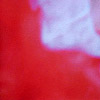 Tigersmilk is free jazz improvisation by Rob Mazurek playing cornet andelectronics, Jason Roebke on bass and Dylan van der Schyff on drums."Free jazz" is a genre every bit as conservative as any in that mostconservative of musical realms: jazz. It has its standardizedtechniques, stock gestures and established styles and this CD is sodeeply into the manipulation of these familiar symbols that I wonder ifthe intent is post modern. Roebke and van der Schyff are both verycapable and skilled in such manipulations. Indeed Roebke boasts amasters degree in improvisation, a training that, judging by thisdocument, included almost all the elementary avant-garde bass playingtechniques that I loathe (the ugly-bowed harmonics, out of tune doublestopped chords, muted pizzicato, etc,...). When Roebke gets going inthe accompaniment role, the competent result is the Gary Peacock stylethat unlimited numbers of bass players apparently never tire ofimitating. An accompanying blurb quotes Jazz Times as comparing van derSchyff to Oxley and Lovens. This is informative only up to the pointthat van der Schyff can clatter around the kit in a fairly frenetic anddisconnected way like those Europeans do, but beyond that thecomparison is misleading. Firstly, he clearly sounds like a jazzer andsecondly, he is a sympathetic and supportive drummer rather thanleading the process by constantly challenging it. (Basically the quotemeans that van der Schyff can imitate the Lovens sound fairlyaccurately, which is true.) The contrast in musicianship betweenMazurek and the others on this CD could hardly be starker, and yetagain, what should be the last resort of stylistic imitation is in factthe first. Loud raspy trills and split-notes in familiar suddendisjointed gestures are offered up as a version of avant-gardeexpressionism. All in all, it's hard for me to imagine how anyone canreally get excited by playing all these tired old ideas again andagain, which is maybe why Tigersmilk sounds as though the players arealready bored by the whole thing.
Tigersmilk is free jazz improvisation by Rob Mazurek playing cornet andelectronics, Jason Roebke on bass and Dylan van der Schyff on drums."Free jazz" is a genre every bit as conservative as any in that mostconservative of musical realms: jazz. It has its standardizedtechniques, stock gestures and established styles and this CD is sodeeply into the manipulation of these familiar symbols that I wonder ifthe intent is post modern. Roebke and van der Schyff are both verycapable and skilled in such manipulations. Indeed Roebke boasts amasters degree in improvisation, a training that, judging by thisdocument, included almost all the elementary avant-garde bass playingtechniques that I loathe (the ugly-bowed harmonics, out of tune doublestopped chords, muted pizzicato, etc,...). When Roebke gets going inthe accompaniment role, the competent result is the Gary Peacock stylethat unlimited numbers of bass players apparently never tire ofimitating. An accompanying blurb quotes Jazz Times as comparing van derSchyff to Oxley and Lovens. This is informative only up to the pointthat van der Schyff can clatter around the kit in a fairly frenetic anddisconnected way like those Europeans do, but beyond that thecomparison is misleading. Firstly, he clearly sounds like a jazzer andsecondly, he is a sympathetic and supportive drummer rather thanleading the process by constantly challenging it. (Basically the quotemeans that van der Schyff can imitate the Lovens sound fairlyaccurately, which is true.) The contrast in musicianship betweenMazurek and the others on this CD could hardly be starker, and yetagain, what should be the last resort of stylistic imitation is in factthe first. Loud raspy trills and split-notes in familiar suddendisjointed gestures are offered up as a version of avant-gardeexpressionism. All in all, it's hard for me to imagine how anyone canreally get excited by playing all these tired old ideas again andagain, which is maybe why Tigersmilk sounds as though the players arealready bored by the whole thing. 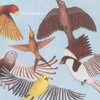 The defining moment of an album is frequently its closer. It's the last chance to make a lasting impression on the listener that can turn a good album into a timeless classic. Looking back on the 1990s, 'Millions Now Living Will Never Die' ended with the lasting impression of "Along the Banks of Rivers," a tune which differed so much from the others on that record but was strong enough to leave many breathless. Without that unpredictable variety and solid strength that came with the borderline out-of-place "Banks," it's almost unsurprising that when asked about Tortoise, their subsequent albums, 'TNT' and 'Standards' rarely are mentioned as being as globally important.
The defining moment of an album is frequently its closer. It's the last chance to make a lasting impression on the listener that can turn a good album into a timeless classic. Looking back on the 1990s, 'Millions Now Living Will Never Die' ended with the lasting impression of "Along the Banks of Rivers," a tune which differed so much from the others on that record but was strong enough to leave many breathless. Without that unpredictable variety and solid strength that came with the borderline out-of-place "Banks," it's almost unsurprising that when asked about Tortoise, their subsequent albums, 'TNT' and 'Standards' rarely are mentioned as being as globally important.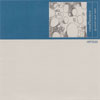 Intransitive Recordings has released one in a pair of discs by JohnGrznich and Seth Nehil that explores their prolonged colaboration ofthe last several years. 'Confluence' opens with an extended, airy droneand a slight whisper that leads into a repeated clanking rhythm thatgrows until another, deeper drone can supplant the first. Slowly,microorganisms made purely of sound begin to swell and collide as theopening piece, titled "Pneuma" in a vaguely scientific artspeak createsa self-sustaining colony of sounds as beings. Of course, thesound-organisms don't have to abide by the physical laws and socialrules that real beings would, and so the analogy ends there. ButGrznich and Nehil have set out to create organic sound systems with'Confluence' and the differentiation between an organic system and asymbol of one is important. The prose that fills the liner notes iscoldly detached as it describes processes, and experiments more thansounds and feelings. Of course, not all music is set to resonate on anemotional level, and "Pneuma" is a good example of that. You can findthe structures, observe the growth and be completely involved inlistening to the system, but it's not likely to affect you in apersonal, emotional way unless you are normally moved by the kind ofrigidly scientific approach to the world that this track seems toentail. "The Distant Edge," however, treads a very different terrainthat is full of voices and the aural signifiers of human activity. Theatonal choral drone that builds with the agitated activity of a beehiveis reminiscent of the György Ligeti themes in 2001, and is accompaniedby location recordings of crowd noise and honking car horns that evokethe confusion and dissonance of a demonstration in Belgrade. Thealbum's closer, "Lohme" is a fluttering, cyclic drone workout that seesa sonic system in stasis, wrapping around itself in a pulsatingwhitewash. "Lohme" lacks the tension of "The Distant Edge" and theclinical precision of "Pneuma," but works on it's own as a worthy forayinto musical structures that take an almost extreme amount of patienceand time to digest. From the pen and ink drawing on the cover to thelast fading tones of recorded tones, 'Confluence' is an observablesonic petri dish. Just like looking through a microscope at amorphousshapes colliding in the protoplasm, approaching this record can bedifficult and rewarding depending on what you expect to find.
Intransitive Recordings has released one in a pair of discs by JohnGrznich and Seth Nehil that explores their prolonged colaboration ofthe last several years. 'Confluence' opens with an extended, airy droneand a slight whisper that leads into a repeated clanking rhythm thatgrows until another, deeper drone can supplant the first. Slowly,microorganisms made purely of sound begin to swell and collide as theopening piece, titled "Pneuma" in a vaguely scientific artspeak createsa self-sustaining colony of sounds as beings. Of course, thesound-organisms don't have to abide by the physical laws and socialrules that real beings would, and so the analogy ends there. ButGrznich and Nehil have set out to create organic sound systems with'Confluence' and the differentiation between an organic system and asymbol of one is important. The prose that fills the liner notes iscoldly detached as it describes processes, and experiments more thansounds and feelings. Of course, not all music is set to resonate on anemotional level, and "Pneuma" is a good example of that. You can findthe structures, observe the growth and be completely involved inlistening to the system, but it's not likely to affect you in apersonal, emotional way unless you are normally moved by the kind ofrigidly scientific approach to the world that this track seems toentail. "The Distant Edge," however, treads a very different terrainthat is full of voices and the aural signifiers of human activity. Theatonal choral drone that builds with the agitated activity of a beehiveis reminiscent of the György Ligeti themes in 2001, and is accompaniedby location recordings of crowd noise and honking car horns that evokethe confusion and dissonance of a demonstration in Belgrade. Thealbum's closer, "Lohme" is a fluttering, cyclic drone workout that seesa sonic system in stasis, wrapping around itself in a pulsatingwhitewash. "Lohme" lacks the tension of "The Distant Edge" and theclinical precision of "Pneuma," but works on it's own as a worthy forayinto musical structures that take an almost extreme amount of patienceand time to digest. From the pen and ink drawing on the cover to thelast fading tones of recorded tones, 'Confluence' is an observablesonic petri dish. Just like looking through a microscope at amorphousshapes colliding in the protoplasm, approaching this record can bedifficult and rewarding depending on what you expect to find. Stray Light are the Manchester (UK) band I've enjoyed most in recentyears. After seeing their earliest gigs I invited them to support BardoPond and Stars of the Lid when I put on gigs for those bands. Theirdebt to Sonic Youth has always been apparent, but they play up a moremannered and thoughtful side of that influence than most detunedrockists. When they first started gigging around Manchester amongst asea of turgid Oasis clones they stood out a mile. Stray Light are allabout slowburning intertwined guitar melodies, bolstered by sweetviolin drone and skittering drums. 'Careers' consists mostly of finelywrought instrumentals which gleam elegantly, but it's a shame Kat Moordoesn't sing a little more as she can bring a heartfelt longing to hersemi-mumble singing that's quite stunning at times, and her duet withbassist / violinist Ellen Poliakoff on "Sarcasm On The Move" has astrange playground nursery rhyme feel that's both cute and sinister.Vocals don't force an entry until the fourth track, "Hearing Shapes,"which brings a buried folkiness to the byre. Whilst they open the albumwith all strings blazing in the psychedelic cloud swarms of the veryappropriately titled "Haze & Your Arm," mostly guitarists Kat andDavid Bennett pick careful arpeggiated flutter, swirling around in everdeepening pools, building carefully considered sunrise momentum. Whenthey do unleash a little six string fire, its always been carefullystoked. It seems rhythmic thrust is painted in by the guitar melodies,and Dan Dunbobbin's drumming tends to punctuate. The final track"Kitty's Blues" finds Kat describing pent up rage brilliantly in asparse lyric, "Every time you shut your eyes, you burst into flames,"and the album careers to a langourous anti-climax, cutting off aheartrending yearning elegy just as it seems about to explode.'Careers' follows up the CD-R release 'Mile 7' with similar shimmeringquality, but with perhaps more obvious contribution from their newestmember Ellen, whose violin has become ever more central to their sound.You can hear tracks at the Doubtful Sound website.
Stray Light are the Manchester (UK) band I've enjoyed most in recentyears. After seeing their earliest gigs I invited them to support BardoPond and Stars of the Lid when I put on gigs for those bands. Theirdebt to Sonic Youth has always been apparent, but they play up a moremannered and thoughtful side of that influence than most detunedrockists. When they first started gigging around Manchester amongst asea of turgid Oasis clones they stood out a mile. Stray Light are allabout slowburning intertwined guitar melodies, bolstered by sweetviolin drone and skittering drums. 'Careers' consists mostly of finelywrought instrumentals which gleam elegantly, but it's a shame Kat Moordoesn't sing a little more as she can bring a heartfelt longing to hersemi-mumble singing that's quite stunning at times, and her duet withbassist / violinist Ellen Poliakoff on "Sarcasm On The Move" has astrange playground nursery rhyme feel that's both cute and sinister.Vocals don't force an entry until the fourth track, "Hearing Shapes,"which brings a buried folkiness to the byre. Whilst they open the albumwith all strings blazing in the psychedelic cloud swarms of the veryappropriately titled "Haze & Your Arm," mostly guitarists Kat andDavid Bennett pick careful arpeggiated flutter, swirling around in everdeepening pools, building carefully considered sunrise momentum. Whenthey do unleash a little six string fire, its always been carefullystoked. It seems rhythmic thrust is painted in by the guitar melodies,and Dan Dunbobbin's drumming tends to punctuate. The final track"Kitty's Blues" finds Kat describing pent up rage brilliantly in asparse lyric, "Every time you shut your eyes, you burst into flames,"and the album careers to a langourous anti-climax, cutting off aheartrending yearning elegy just as it seems about to explode.'Careers' follows up the CD-R release 'Mile 7' with similar shimmeringquality, but with perhaps more obvious contribution from their newestmember Ellen, whose violin has become ever more central to their sound.You can hear tracks at the Doubtful Sound website. 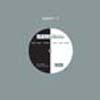 Swim releases are always worth a shot, so after being a bit surprised that Colin Newman was releasing a single by a band who sounded on the surface to be some kind of reversion to punk rock '77, I decided to try it anyway and see if it didn't grow in. This was a good idea, as I'd heard compressed radio broadcasts of Rhodes prior to hearing the single, and some of the raw powerhouse energy had been shorn away.
Swim releases are always worth a shot, so after being a bit surprised that Colin Newman was releasing a single by a band who sounded on the surface to be some kind of reversion to punk rock '77, I decided to try it anyway and see if it didn't grow in. This was a good idea, as I'd heard compressed radio broadcasts of Rhodes prior to hearing the single, and some of the raw powerhouse energy had been shorn away.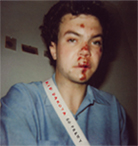 Originally self-released as a five-song EP in 2001, Kid Dakota's expanded version (his debut full-length) arrives with three new tracks on Low's Chairkickers Union Music. (Low's own Zak Sally even joins the Minneapolis duo on bass on several tracks.) For a two-man outfit—Christopher McGuire on percussion and Darren Johnson contributing vocals, guitar, and all other instruments—Kid Dakota is electric. Jackson's songwriting and unvarnished angst break forth with surprising ferocity given that most of his songs feature two- (or three- or four-) part vocal harmonies and languorous guitar solos.
Originally self-released as a five-song EP in 2001, Kid Dakota's expanded version (his debut full-length) arrives with three new tracks on Low's Chairkickers Union Music. (Low's own Zak Sally even joins the Minneapolis duo on bass on several tracks.) For a two-man outfit‚ÄîChristopher McGuire on percussion and Darren Johnson contributing vocals, guitar, and all other instruments‚ÄîKid Dakota is electric. Jackson's songwriting and unvarnished angst break forth with surprising ferocity given that most of his songs feature two- (or three- or four-) part vocal harmonies and languorous guitar solos.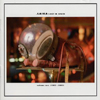 Only very few of my fave bands can usher me in a trance-like state tocompletely different worlds like Laika. After ten years of recording assuch, their first compilation has surfaced—collecting a number offavorites, rarities and unreleased things. While theobsessive/compulsive nitpicky side of me starts screaming bloody murderlooking for other rare omitted or forgotten tunes, the calm/collectedside of me is very thankful this came out. Thinking back to 1993, itwas obvious from the first Moonshake recordings that their strengthswere in the bass, female vocals and killer production. After releasingthe 'Eva Luna' LP and a couple EPs, the bassist, female singer andproducer broke free from Moonshake. (Unsurprisingly Moonshake's qualitysharply went downhill.) Guitarist/vocalist Margaret Fiedler, amid-westerner living in London and producer Guy Fixsen formed Laikawith other Moonshake alum, John Frenett on bass guitar. The debutalbum, 'Silver Apples of the Moon' surfaced in 1995 and further pushedthe best ideas put forth on 'Eva Luna,' deftly crashing the sounds ofadventurous rock and rhythmic mayhem. The dangerously catchy tunes weresaturated in electronic and organic percussion, whimsical loops,intoxicating repetitious bass guitar riffs and unoffensive vocals. Iremember seeing Tricky open for Laika on this tour and was simply wowedby their deceptive simplicity. Frenett departed, Rob Ellis joined andtheir second album, 'Sounds of the Satellites' came out in 1997. WithRob's departure, Laika became more clearly defined a duo between Guyand Margaret. 'Good Looking Blues,' released in 2000, was easily one ofmy faves of the year: their instrumentation became less and lesssaturated while the feel became more and more galactic. (Sometimes it'samazing how the simplest of instrumentations can create the mostcompelling songs.) All three albums are represented by some of theirband-picked highlights, while the bonus material includes non-albumtracks like "Lower Than Stars," originally recorded for a Volume comp,the brand new song, "Beestinger," three Peel Session recordings, theircover of Wire's "German Shepherds," and a couple remixes including JackDangers' epic 9+ minute extension of "Looking for the Jackalope."Originally recorded for the Red Hot compilaiton, 'Off-Beat,'"Jackalope" is one of my fave Dangers remixes, rhythmically laden withwhat sounds like baby rattles and entertaining samples of psychedelicnumerologists. Furthermore, an accompanying booklet has really coolstories and factual tidbits. For example: did you know singer/guitaristMargaret Fiedler has done more Peel Sessions for more bands than anyother woman? (This is due to her performances with Laika, Moonshake, PJHarvey and God is My Co-Pilot.) 'Lost in Space' is a two-disc set andis graciously priced only as a single and is worth every minute.
Only very few of my fave bands can usher me in a trance-like state tocompletely different worlds like Laika. After ten years of recording assuch, their first compilation has surfaced—collecting a number offavorites, rarities and unreleased things. While theobsessive/compulsive nitpicky side of me starts screaming bloody murderlooking for other rare omitted or forgotten tunes, the calm/collectedside of me is very thankful this came out. Thinking back to 1993, itwas obvious from the first Moonshake recordings that their strengthswere in the bass, female vocals and killer production. After releasingthe 'Eva Luna' LP and a couple EPs, the bassist, female singer andproducer broke free from Moonshake. (Unsurprisingly Moonshake's qualitysharply went downhill.) Guitarist/vocalist Margaret Fiedler, amid-westerner living in London and producer Guy Fixsen formed Laikawith other Moonshake alum, John Frenett on bass guitar. The debutalbum, 'Silver Apples of the Moon' surfaced in 1995 and further pushedthe best ideas put forth on 'Eva Luna,' deftly crashing the sounds ofadventurous rock and rhythmic mayhem. The dangerously catchy tunes weresaturated in electronic and organic percussion, whimsical loops,intoxicating repetitious bass guitar riffs and unoffensive vocals. Iremember seeing Tricky open for Laika on this tour and was simply wowedby their deceptive simplicity. Frenett departed, Rob Ellis joined andtheir second album, 'Sounds of the Satellites' came out in 1997. WithRob's departure, Laika became more clearly defined a duo between Guyand Margaret. 'Good Looking Blues,' released in 2000, was easily one ofmy faves of the year: their instrumentation became less and lesssaturated while the feel became more and more galactic. (Sometimes it'samazing how the simplest of instrumentations can create the mostcompelling songs.) All three albums are represented by some of theirband-picked highlights, while the bonus material includes non-albumtracks like "Lower Than Stars," originally recorded for a Volume comp,the brand new song, "Beestinger," three Peel Session recordings, theircover of Wire's "German Shepherds," and a couple remixes including JackDangers' epic 9+ minute extension of "Looking for the Jackalope."Originally recorded for the Red Hot compilaiton, 'Off-Beat,'"Jackalope" is one of my fave Dangers remixes, rhythmically laden withwhat sounds like baby rattles and entertaining samples of psychedelicnumerologists. Furthermore, an accompanying booklet has really coolstories and factual tidbits. For example: did you know singer/guitaristMargaret Fiedler has done more Peel Sessions for more bands than anyother woman? (This is due to her performances with Laika, Moonshake, PJHarvey and God is My Co-Pilot.) 'Lost in Space' is a two-disc set andis graciously priced only as a single and is worth every minute.
